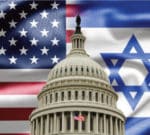Capitol Hill Policy Conference Call Seminar – “9/11 Memorial Phone Seminar”
September 12, 2018 On the seventeenth anniversary of the horrific events of September 11, 2001, the United States and the Western world face the same threat by genocidal Islamic terrorists that were responsible for the death of 3,000 Americans on U.S. soil.
Since 9/11, al-Qaeda and other Islamist terror groups have struck the U.S. multiple times, in Boston, MA, San Bernardino, CA, and in Orlando, FL, among other places. Some of the terrorists involved in these attacks first became radicalized through the efforts of the Islamist group called the Muslim Brotherhood (MB). The MB, which originated in Egypt, seeks to establish a worldwide Islamic Caliphate, and advocates for violent terrorism. It has spread its tentacles throughout the world, including to the U.S., where it has a number of front groups including CAIR, ISNA, MAS, and MPAC among others. These groups pose as moderate Muslim civil rights groups and often interact with federal, state, and local governments, spreading disinformation and propaganda to the authorities. Yet many leaders and members of these MB groups have ties to U.S.-designated terrorist organizations and perpetuate their radical ideologies here in the U.S.
How can the U.S. stop the spread of radical Islamic ideology that inspires homegrown terrorists? Can Western Muslim leaders counter radicalization within their communities? And what steps should the United States take to safeguard our homeland and prevent future attacks on U.S. soil? To discuss these questions and more, EMET held a phone seminar with Dr. Zuhdi Jasser and Kyle Shideler.
Invest in the truth
Help us work to ensure that our policymakers and the public receive the EMET- the Truth.


